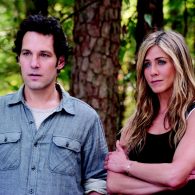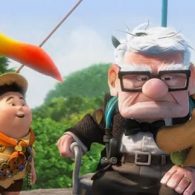
I saw Defiance (opening wide January 16) about two months ago and attended a Q & A with stars Daniel Craig (hottie alert—I could see his intense blue eyes from twenty rows back), Liev Schreiber, Jamie Bell, Alexa Davalos and director Ed Zwick. It was a really interesting session, with anecdotes about the family depicted in the film, so I thought I’d post some of the highlights here.
 First, let me say I liked the movie. It’s based on a non-fiction book by Nechama Tec called Defiance: The Bielski Partisans, about Jews hiding and fighting Nazis in the Belarusian woods, led by the two oldest Bielski brothers, Tuvia (Craig) and Zus (Schreiber). The movie practically gave me post-traumatic stress disorder because the atmosphere Zwick created was so tense. He never relented in keeping the threat of danger clear and present. Even when people were just sitting around eating soup, I was sure Nazis were going to burst through the trees shooting any minute.
First, let me say I liked the movie. It’s based on a non-fiction book by Nechama Tec called Defiance: The Bielski Partisans, about Jews hiding and fighting Nazis in the Belarusian woods, led by the two oldest Bielski brothers, Tuvia (Craig) and Zus (Schreiber). The movie practically gave me post-traumatic stress disorder because the atmosphere Zwick created was so tense. He never relented in keeping the threat of danger clear and present. Even when people were just sitting around eating soup, I was sure Nazis were going to burst through the trees shooting any minute.
When the attacks do come, they’re spectacularly staged, with in-your-face camera work that puts you right in the action (hence, the PTSD). The story is eye-opening and the cast is solid but what keeps me from deeming this movie great is the sense I’ve seen some of it before. A scene of violence intercut with a wedding was reminiscent of a scene in The Godfather where a massacre and baptism took place simultaneously. Some of the fighting sequences, including one in which the sound shuts down because one of the characters goes temporarily deaf after a loud explosion, reminded me of Saving Private Ryan and Zwick’s own Glory. There’s a savage beating with rocks by natives gone mad that made me think of Lord of the Flies.
So, it’s not a perfect film but still very good and worth seeing, if for no other reason than to educate yourself a little about the Bielski brothers, who apparently never sought recognition for what they did. Here’s what Zwick and the cast had to say about it all at the Q & A, moderated by veteran movie reviewer Pete Hammond (this isn’t verbatim—just the highlights):
Hammond asked Zwick about the project’s origins. Zwick said, “Twelve years ago, we optioned the book. It led us to the family and they gave us tapes of their fathers recorded before they died…There’s a whole world that’s unexplored. You hear about the idea of passivity” of the Jews but not about them fighting back.
Hammond asked Craig what he thought when he was offered a character that’s “not likable.”
 “I was surprised. I’d never heard the story,” Craig said. He explained how he and Zwick had been talking about working together for five or six years and once he explored the Bielskis’ story, he felt this was the right project.
“I was surprised. I’d never heard the story,” Craig said. He explained how he and Zwick had been talking about working together for five or six years and once he explored the Bielskis’ story, he felt this was the right project.
Hammond asked if he met the family.
“[The grandchilren] came to the set, very much alive and brash…”
“What did you learn from them?” Hammond asked.
“They liked to drink vodka,” Craig said.
“I found them very intimidating. They were big,” Schreiber chimed in.
“Your character was more prone to violence,” Hammond said to Schreiber. “How did you develop the character?”
“[Zwick] wanted us to speak Russian in the film. He hired a Russian linguist. It was learning Russian that got me into character. Something about saying, ‘Twice I hit you and you shit’ in Russian summed it up for me. There’s something about the language that’s very dominant, a…history of suffering built into it.”
Hammond then asked Davalos, who played Lilka, Tuvia’s love interest, if she talked with Craig to develop their relationship.

“As soon as I met him,” Davalos said, then addressed Craig, “you put me at ease and I was very grateful.” She turned back to Hammond, “This is a story about living; love is a big part of it. Love takes you out of reality for the moment.”
“The first scene, we had to kiss,” Craig said. “I agree with Alexa that without love…these people had to fall in love [or else] there’s no existence.”
“Eighteen surviving members [of the group who hid in the woods] went to the premiere,” Zwick said. “There were 800 children, grandchildren and family members in the theater. They never thought their story would be told.”
 Hammond addressed Bell, who played another brother, Asael. “How did you bond with the guys?”
Hammond addressed Bell, who played another brother, Asael. “How did you bond with the guys?”
“They were a pain in the arse, both of them,” Bell said, to audience laughter. “I came from a family of women so having two elderly brothers…”
Craig interrupted. “Elderly?!” The audience laughed harder.
“Of age,” Bell continued. “Daniel threw me into a car once. I think that was a bonding moment. This was a story of a boy coming of age. I had a fantastic time with these elderly guys.”
Hammond asked about the rehearsal process.
 “Going to the pub was a big part of rehearsal,” Zwick joked. “They’re very sophisticated actors, they knew where they wanted to get to. That rivalry—they started playing with it in the best way. Liev signed his emails as BB, for Bigger Bielski.”
“Going to the pub was a big part of rehearsal,” Zwick joked. “They’re very sophisticated actors, they knew where they wanted to get to. That rivalry—they started playing with it in the best way. Liev signed his emails as BB, for Bigger Bielski.”
Hammond said, “The actual place [where the film’s events occurred] is now a dictatorship and you couldn’t film there. What was it like to shoot in Lithuania?”
“We shot for twelve weeks but at night, we went home to bed and had coffee,” Craig said. “It was cold and hard. God knows what it was like for those people to live—not just live but survive.”
“When your fingers are freezing, you don’t have to talk a lot about Stanislavski,” Zwick added.
“One of the biggest apples of the story is bad things happen,” Craig said. “That moral complex makes it interesting. Tuvia doesn’t want to lead, he wants to grab his family and run.” But, Craig explained further, Tuvia had to lead and within that leadership he had to do some morally questionable things.
“There’s a balance between saving your people and fighting the enemy. Tuvia found that balance,” Davalos said.
At this point, Hammond started taking questions from the audience. Someone asked, “What was cut out [of the film]?”
Schreiber made a comical pouty face. “A lot of scenes of me beating the crap out of people, which I was very fond of.”
Zwick said, “Tuvia being a cab driver in New York City as a wraparound device…”
Craig interjected, “Sixteen hours in makeup.”
Zwick decided to scrap the framing device because “I didn’t want to jerk the audience out of the forest.” [I think this was a very wise move. I seriously dislike framing devices.]
Hammond asked if there was a lot of improvisation or if the actors stuck to the script.
“Some actors’ ideas are all bad,” Zwick said. “These actors—every idea [they had] made the film better.” He also mentioned that Asael’s real-life daughter visited the set on the very day they were shooting the wedding of her parents.
An audience member asked, “What happened to Aaron [the youngest Bielski]?”
“He’s eighty-three, with his forty-year-old trophy wife,” Zwick answered. “He was arrested for extorting an old neighbor lady.”
Someone asked about the violence the Bielskis had to commit in order to survive.
 “The American G.I.s had a term—Bielski Enema, [which is] shoving a potato masher grenade into a German’s rectum,” Schreiber said. “I don’t think Tuvia wanted anyone to know that story. To continue to live and raise his children in a peaceful way is remarkable because being exposed to violence is scarring…The conflict was remarkable to me. In the forest, people were free. In the ghetto, they were being killed.”
“The American G.I.s had a term—Bielski Enema, [which is] shoving a potato masher grenade into a German’s rectum,” Schreiber said. “I don’t think Tuvia wanted anyone to know that story. To continue to live and raise his children in a peaceful way is remarkable because being exposed to violence is scarring…The conflict was remarkable to me. In the forest, people were free. In the ghetto, they were being killed.”
Craig added, “Without each other, they’re not strong. Tuvia needs Zus as a soldier and brother. The movie’s about keeping your family together, keeping it strong.”
Another audience member asked, “Was the final battle condensed?”
 “It was condensed,” Zwick said. “The Germans brought twenty thousand troops into the forest.” He explained that the Russians came in to liberate the group of resistance fighters. “These 1200 people came out of the forest and the villagers who thought they were dead thought they were seeing ghosts.”
“It was condensed,” Zwick said. “The Germans brought twenty thousand troops into the forest.” He explained that the Russians came in to liberate the group of resistance fighters. “These 1200 people came out of the forest and the villagers who thought they were dead thought they were seeing ghosts.”
On that note, Hammond wrapped things up and ended the Q & A.




